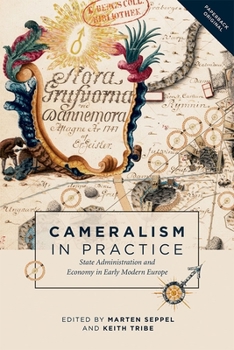Cameralism in Practice: State Administration and Economy in Early Modern Europe
(Part of the People, Markets, Goods: Economies and Societies in History Series)
The first book that acknowledges cameralism as a European rather than just a German historical phenomenon. This book discusses the impact of cameralism on the practices of governance, early modern state-building and economy in seventeenth- and eighteenth-century Europe. It argues that the cameralist conception of state and economy - aform of 'science' of government dedicated to reforming society while promoting economic development, and often...
Format:Paperback
Language:English
ISBN:1783272287
ISBN13:9781783272280
Release Date:October 2017
Publisher:Boydell Press
Length:328 Pages
Weight:1.02 lbs.
Dimensions:0.7" x 6.1" x 9.2"
Customer Reviews
0 rating





